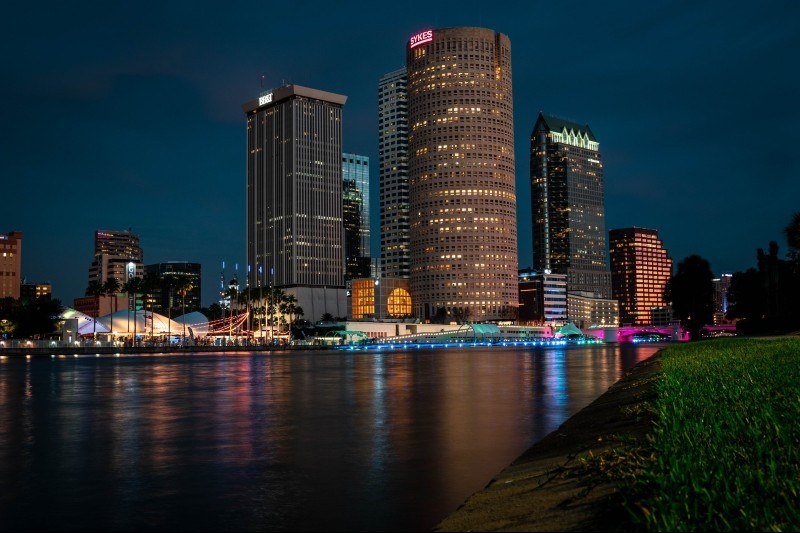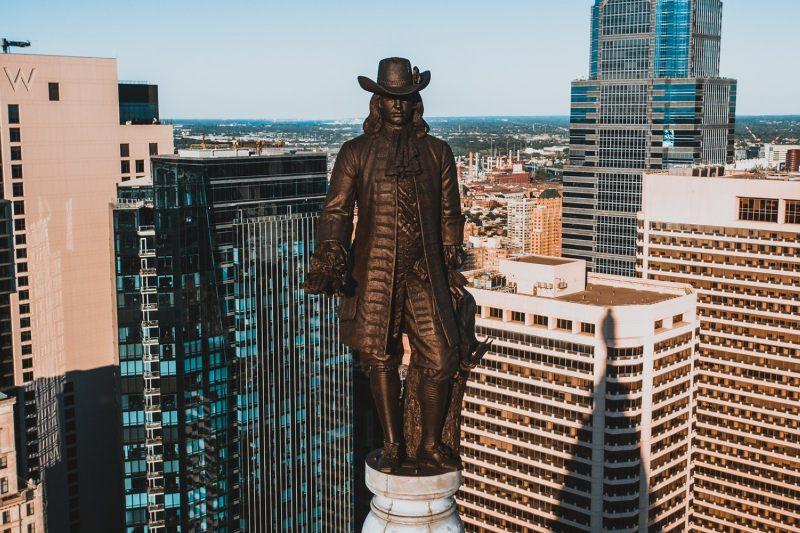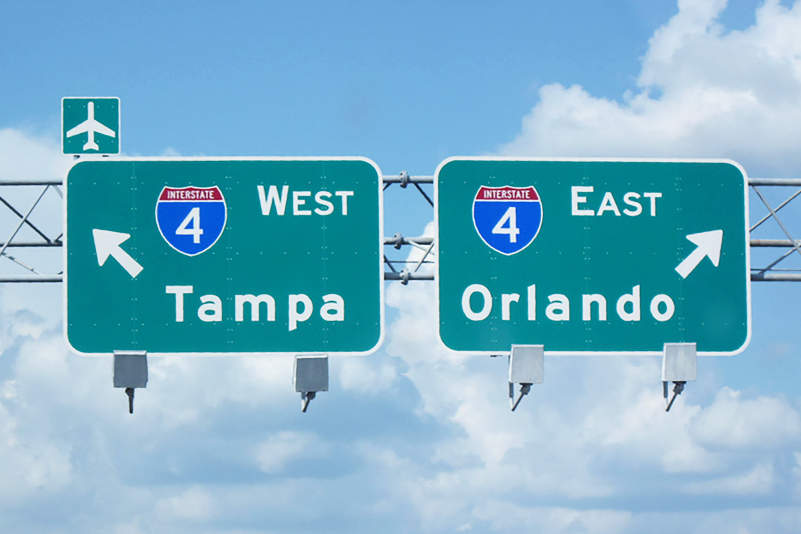According to the most recent U.S. census, Jacksonville gained an incredible quarter-million people over the past decade - and its population is looking increasingly diverse. In other words, a lot of people are moving to Jacksonville.
Maybe it’s not so surprising once you consider that Jacksonville is incredibly affordable. Despite being a major city (the largest in Florida and the 12th largest city in the U.S.), Jacksonville is actually cheaper to live in than the U.S. average, as measured by the cost-of-living index. Compared to other major cities like NYC, Austin, and Denver - which all rank well above the average - Jacksonville is quite the steal, providing all of the important urban amenities (and a beach!) for a fraction of the price.
If you’re considering moving to the city of “easy living” - but not sure what to expect from your budget - here’s what you need to know about the cost of living in Jacksonville, FL.
Jacksonville Cost of Living Comparison: Other Major Cities
On the whole, Jacksonville is one of the most reasonably-priced major cities. The metro area has numerous colleges, parks, top-rated restaurants, and a thriving nightlife scene, so it's become a popular destination for people who want the benefits of a big city while still being able to save money, access the outdoors/beach, buy a home, and more. Jacksonville has an overall cost-of-living index of 93.5 (the U.S. average is 100).
According to Nerdwallet, to maintain your standard of living compared to a pre-tax income of $70,000 in Jacksonville, you’d need to make:
- Austin: $78,113 (the cost of living is 12% higher in Austin)
- Denver: $87,152 (the cost of living is 25% higher)
- Manhattan: $196,788 (the cost of living is 181% higher)
- Miami: $88,698 (the cost of living is 27% higher)
- Nashville: $73,168 (the cost of living is 5% higher)
- Orlando: $70,000 (the cost of living is 0% higher)
Housing typically comprises one of the largest expenditures for households. Even though home prices have been rising in Jacksonville over the past five years, it still remains one of the more affordable cities to either rent or own a home in - allowing many middle-class families to live comfortably. This city has also become popular with retirees for this reason.
The average rent (via RentCafe):
- Austin: $1,539, 865 sq. ft.
- Denver: $1,763, 843 sq. ft.
- Jacksonville: $1,266, 965 sq. ft.
- Manhattan: $3,872, 701 sq. ft.
- Miami: $1,837, 887 sq. ft.
- Nashville: $1,502, 888 sq. ft.
- Orlando: $1,611, 963 sq. ft.
Not only is Jacksonville the most affordable city of this group for renting; it also offers the most average square footage.
The median home price in Jacksonville is currently $265,000, according to Redfin. This is relatively low for a major city, yet prices are rising year after year - making a Jacksonville home a good investment.
By comparison, here are the average home prices for other major cities:
- Austin: $600,000
- Denver: $565,000
- Jacksonville: $265,000
- Manhattan: $1.18 million
- Miami: $420,000
- Nashville: $400,000
- Orlando: $315,000
Expenses in Jacksonville, FL
Comparisons aside, what else can you expect to pay for in Jacksonville? Though numbers can vary widely, according to Numbeo you can expect these average standards:
- $3.59 for a gallon of milk
- $72 for internet
- $54 for public transport (one month pass)
- $55 for a mid-range dinner for two
- $145 for utilities
- $29 for a monthly gym membership
Jacksonville has numerous farmers’ markets that can help families on a budget find more affordable fresh produce. Best Places indexes the cost of groceries in Jacksonville at 99.2, with 100 being the national average.
An estimated 2% of Jacksonville residents take public transport, which is relatively low when compared to many major cities - so most newcomers will likely need to make sure they have a car or access to one. This is likely because Jacksonville is incredibly spread out - it’s the largest city by area in the U.S. - and because Jacksonsville’s public transport system is largely comprised of buses, which typically take longer than an underground system. A car is often just the most efficient way to get around the city by far.
Jacksonville also has a walking score of 26, which means that most errands will require a car.
What Our Local Realtor Has to Say
“While real estate affordability is in a bit of a squeeze in Jacksonville presently, Jacksonville is one of the best places to buy rental property for 2021. Real estate investors looking for cash flow and equity growth over the long-term should benefit by owning good rental housing in Jacksonville,” says Jacksonville-based buyer agent Lee Krause.
“Affordable properties for flipping or AirBnBs are always a good bet due to the area's strong job growth, population growth, and a consistent tourist destination with beautiful beaches and family-friendly attractions.”
For Further Reading



